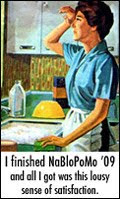Here's how Google explains its product(s):
When you visit www.google.com or one of more than 150 other Google domains, you can find information in many different languages (and translate between them), check stock quotes and sports scores, find news headlines and look up the address of your local post office or grocery store. You can also find images, videos, maps, patents and much more. With universal search technology, you can often find all of these things combined in one query.
"Google" is a "play" on googol, the name for the number with 100 zeroes (or 10 to the 100th power).
So, how in tarnation do your Google? Thanks to the power of browsers, you have some options on how to start, and thanks to Google, you have incredibly accurate results!
1. Go to www.google.com.
2. Type your desired search. Looking for cat photos? Type "cats". Click "Google Search" or ENTER. If you click "I'm Feeling Lucky" Google will skip the search results and take you (directly) to the first result.
This is what the results page looks like:
Google has a column of ads on the right. You can ignore the ads. The column in the middle is your search results. The column on the left, the sidebar, will help narrow your search. (So will the navbar at the top of the screen.) You can eliminate the Web pages and see just photos by clicking IMAGES on the left or IMAGES on the top.
Wow! Now you can click on the photo you want. (You can also finangle your image settings by color and image type!) Or bask in the glory of kitty cats. You can also do this with books, video, and consumer goods.
Here are some other tips:
DON'T write your search in the form of a question.
DO include important details regarding your search. (Looking for a business? Include the town and state in your search.)
DO read the results of your search carefully. (You'll waste time clicking on sites you don't need.)
Additional Information:
Google's About page
How Google Works
Google Corporate
Googol, Wikipedia
Google Guide
Previously:
Technology Lesson: Google Bomb
Technology Lesson: Browsers
Boulean method
I'm Feeling Lucky button
Tabs at top
Boring facts about history, data, usage, etc.







No comments:
Post a Comment